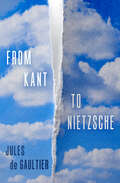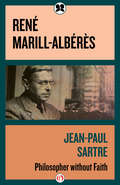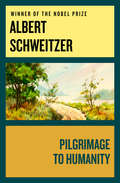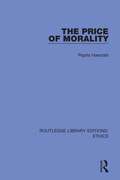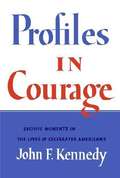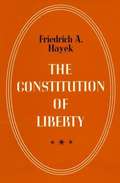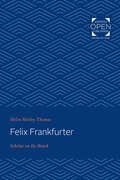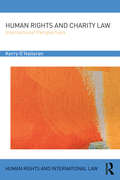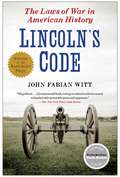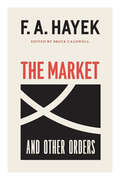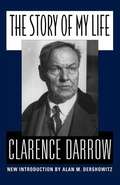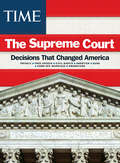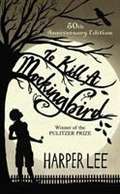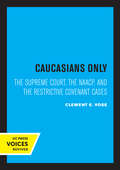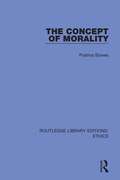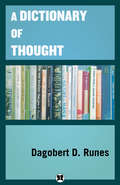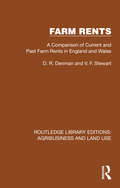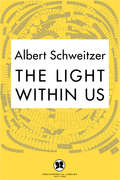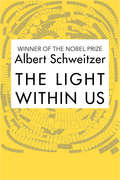- Table View
- List View
From Kant to Nietzsche
by Jules de Gaultier&“Schopenhauer contributed the concept of the will-to-live; Nietzsche that of the will-to-power; and de Gaultier that of the will-to-illusion.&” —Wilmot E. Ellis Can you construct your own reality? What if you don&’t trust your senses, but you want to live a happy, productive life? How should you make moral decisions? What do you believe to be true? Do you believe in a supreme being? How do you decide your moral compass? This work by the author of Le Bovarysme treats the tendency to think of things other than they are as a living source of art. Jules de Gaultier sees this sort of behavior not as a moral or ethical problem, but an aesthetic problem. His metaphysical position has a long and complicated history which can be traced back to the philosophical musings of Kant, Schopenhauer, and Nietzsche. This book was his first published work, and serves as a thought-provoking introduction to his philosophy.
Jean-Paul Sartre: Philosopher Without Faith
by René Marill-AlbérèsProfessor Albérès in this well-ordered volume traces through successive works the elaboration of various concepts now linked to French Existentialism—anguish, nausea, hypocrisy, lucidity, consciousness, conformity, commitment, ethical values, situation, etc. Translated from the French by Wade Baskin.
Pilgrimage to Humanity: The Essence Of Faith, Pilgrimage To Humanity, The Quest Of The Historical Jesus, And The Light Within Us (Paperback Ser.)
by Albert SchweitzerThe dimensions of the central theme are illuminated by Schweitzer&’s discussions of his philosophy of culture, the course of his life, his ministry to human needs in Africa, the idea of reverence for life, the ideal of world peace, the significance of liberal Christianity, and the lives, world-views, and contributions of Johann Goethe, J. S. Bach, and Jesus of Nazareth. The pages of these selections give a remarkable revelation of the creative spirit of a modern saint and philosopher. The translation is by Water E. Stuermann, University of Tulsa.
Pilgrimage to Humanity
by Albert SchweitzerThe dimensions of the central theme are illuminated by Schweitzer&’s discussions of his philosophy of culture, the course of his life, his ministry to human needs in Africa, the idea of reverence for life, the ideal of world peace, the significance of liberal Christianity, and the lives, world-views, and contributions of Johann Goethe, J. S. Bach, and Jesus of Nazareth. The pages of these selections give a remarkable revelation of the creative spirit of a modern saint and philosopher. The translation is by Water E. Stuermann, University of Tulsa.
The Price of Morality
by Pepita HaezrahiOriginally published in 1961, this book defines the specific traits and describes the concrete qualities of moral action. It denotes the boundaries and discusses the conflicts which arise between the aims of moral goodness and those of pure religiosity, personal and historic grandeur and creative excellence. The theories of theologians like Barth and Brunner among others, and the maximalist theories of Nietzsche and his disciples and certain existentialists are contrasted with Kant’s essay on pure ethics.
Profiles in Courage
by John Fitzgerald Kennedy"This is a book about that most admirable of human virtues--courage... and these are the stories of the pressures experienced by eight United States Senators and the grace with which they endured them--the risks to their careers, the unpopularity of their courses, the defamation of their characters, and sometimes, but sadly only sometimes, the vindication of their reputations and their principles." <P><P> During 1954-1955, John F. Kennedy, then a U.S. Senator, chose eight of his historical colleagues to profile for their acts of astounding integrity in the face of overwhelming opposition. These heroes include John Quincy Adams, Daniel Webster, Thomas Hart Benton, and Robert A. Taft. <P><P> Awarded the Pulitzer Prize in 1957, Profiles in Courage resounds with timeless lessons on the most cherished of virtues and is a powerful reminder of the strength of the human spirit.
The Case of the Shapely Shadow
by Erle Stanley GardnerA secretary, convinced her boss is being blackmailed, hires Perry Mason to secure evidence. But when her boss is found murdered, she needs him to defend her on murder charges.
The Case of the Waylaid Wolf
by Erle Stanley GardnerA woman defends herself from date rape by stealing his car. When her would-be rapist is found dead, Perry Mason defends her on the murder charge and does some spectacular misdirection with the evidence.
The Constitution of Liberty
by Friedrich A. HayekIn this classic work Hayek restates the ideals of freedom that he believes have guided, and must continue to guide, the growth of Western civilization. Hayek's book, first published in 1960, urges us to clarify our beliefs in today's struggle of political ideologies.
Felix Frankfurter: Scholar on the Bench
by Helen Shirley ThomasOriginally published in 1960. Felix Frankfurter, a controversial figure in American judicial history, completed more than twenty-one years of service on the Supreme Court. This book is the first extended treatment of his political performance as a justice. It portrays the influence that he, both as teacher and jurist, exerted in the growth of public law over fifty years. He has exerted his influence not only through his writing but also through his personal acquaintance with many important persons in and out of government service. Beyond examining the career of one man, Thomas opens up a wider window on the history of legal thought. The main value of the book, though, lies in its presentation of the philosophy of one leading twentieth-century educator and jurist.
Felix Frankfurter Reminisces
by Felix Frankfurter Harlan B. PhillipsThis volume presents the raw materials for future historians on the variegated aspects of American life, ending with Frankfurter's appointment to the Supreme Court in 1939.
Human Rights and Charity Law: International Perspectives (Human Rights and International Law #36)
by Kerry O'HalloranThe 60 or so nations that subscribe to the common law tradition had for centuries broadly accepted the same legal definitions of what constitutes a charity. In recent years, however, a number of countries have embarked on charity law reform processes, designed to strengthen the regulatory framework and to review and encode common law concepts. A primary driver of reform was the need to modernise national charity law and ensure human rights compatibility. In light of these reforms, this book takes stock of how charity law is adapting to face the challenges presented by human rights. The book identifies the key areas where human rights and charity law intersect and examines the importance of those areas, the principles involved and their political significance. It offers a comparative analysis of selected common law countries including England, Wales, Ireland, US, Canada, Australia and New Zealand, assessing the extent of national human rights and charity compatibility. Kerry O’Halloran also goes on to consider tensions arising from the intersection of human rights and charity law, including the significance of cultural values and heritage, the importance of proportionality and striking a balance between public and private interests in current society.
Lincoln's Code: The Laws of War in American History
by John Fabian WittPulitzer Prize FinalistBancroft Prize WinnerABA Silver Gavel Award WinnerA New York Times Notable Book of the YearIn the closing days of 1862, just three weeks before Emancipation, the administration of Abraham Lincoln commissioned a code setting forth the laws of war for US armies. It announced standards of conduct in wartime--concerning torture, prisoners of war, civilians, spies, and slaves--that shaped the course of the Civil War. By the twentieth century, Lincoln's code would be incorporated into the Geneva Conventions and form the basis of a new international law of war. In this deeply original book, John Fabian Witt tells the fascinating history of the laws of war and its eminent cast of characters--Washington, Jefferson, Franklin, Madison, and Lincoln--as they crafted the articles that would change the course of world history. Witt's engrossing exploration of the dilemmas at the heart of the laws of war is a prehistory of our own era. Lincoln's Code reveals that the heated controversies of twenty-first-century warfare have roots going back to the beginnings of American history. It is a compelling story of ideals under pressure and a landmark contribution to our understanding of the American experience.
Lincoln's Code
by John Fabian WittIn the fateful closing days of 1862, three weeks before Emancipation, the administration of Abraham Lincoln commissioned a code setting forth the laws of war for the armies of the United States. The code announced standards of civilized conduct in wartime concerning issues such as torture, prisoners of war, civilians, spies, and slaves. The code Lincoln approved ultimately shaped the course of the Civil War. And when the war was over, the same code reshaped warfare the world over. By the twentieth century, the 157 articles of Lincoln's code had become the basis of a new international law of war. European powers adopted the American code. International agreements like the Geneva Conventions incorporated and expanded it. In this pathbreaking and deeply original book, John Fabian Witt tells the hidden story of the laws of war in the first century of the United States-and of the extraordinary code that emerged from it to change the course of world history. Lincoln's Code is the haunting and inspiring story of an idea in American history: the idea that conduct in war can be regulated by law. For many, the very idea of a law for war has seemed like an oxymoron. But with sweep and vitality, Witt unfolds the story of the cast of characters who invented the modern laws of war. Washington, Jefferson, and Franklin championed Enlightenment rules for civilized warfare. James Madison went to war in 1812 to vindicate them. Indian conflicts challenged and distorted them. The Mexican War quietly revolutionized them. In the Civil War, Lincoln and a small band of now forgotten figures helped remake those same laws to support Emancipation and advance the Union war effort. Three decades later, a new generation of Americans went into a war of American empire in the Philippines equipped with the very rules Lincoln had laid down. In beautifully crafted prose, Witt brings to life the soldiers and the presidents, the war makers and the pacifists, the Indians and the slaves, the cynics, the utopians, and the pragmatists who struggled with enemies and with one another to shape the United States' vision of the laws of war. A narrative of expansive range and significance, Lincoln's Code depicts the drama of armed conflict and the anguish of human beings grappling with such vexing questions as whether prisoners could be executed; whether there were rules in Indian wars; whether military commissions could try unlawful combatants; whether torture might ever be justified; and whether slaves could be freed in wartime. The code Lincoln issued prohibited cruelty and the infliction of pain for its own sake but left room for vast destruction in the name of a just cause. It condoned the devastation inflicted in Sherman's march to the sea. Yet it also provided a moral foundation for Emancipation and insisted that doing the right thing in situations of grave crisis was indispensable to the legitimacy of modern armies. Witt's engrossing exploration of the dilemmas at the heart of the laws of war is a prehistory of our own era. Today the world once again confronts raging legal and moral controversy over the conduct of war. Lincoln's Code reveals that the controversies of the twenty-first century have roots going back to the beginnings of American history. In a time of heated controversy about the nation's conduct in wartime, Lincoln's Code is a compelling story of ideals under pressure and a landmark contribution to our understanding of the American experience.
The Market and Other Orders (The\collected Works Of F. A. Hayek Ser. #Vol. 15)
by Friedrich A. Hayek edited by Bruce CaldwellIn addition to his groundbreaking contributions to pure economic theory, F. A. Hayek also closely examined the ways in which the knowledge of many individual market participants could culminate in an overall order of economic activity. His attempts to come to terms with the "knowledge problem" thread through his career and comprise the writings collected in the fifteenth volume of the University of Chicago Press's Collected Works of F. A. Hayek series. The Market and Other Orders brings together more than twenty works spanning almost forty years that consider this question. Consisting of speeches, essays, and lectures, including Hayek's 1974 Nobel lecture, "The Pretense of Knowledge," the works in this volume draw on a broad range of perspectives, including the philosophy of science, the physiology of the brain, legal theory, and political philosophy. Taking readers from Hayek's early development of the idea of spontaneous order in economics through his integration of this insight into political theory and other disciplines, the book culminates with Hayek's integration of his work on these topics into an overarching social theory that accounts for spontaneous order in the variety of complex systems that Hayek studied throughout his career. Edited by renowned Hayek scholar Bruce Caldwell, who also contributes a masterly introduction that provides biographical and historical context, The Market and Other Orders forms the definitive compilation of Hayek's work on spontaneous order.
The Story of My Life
by Clarence S. DarrowThe Story of My Life recounts, and reflects on, Clarence Darrow's more than fifty years as a corporate, labor, and criminal lawyer, including the most celebrated and notorious cases of his day: establishing the legal right of a union to strike in the Woodworkers' Conspiracy Case; exposing, on behalf of the United Mine Workers, the shocking conditions in the mines and the widespread use of child labor; defending Leopold and Loeb in the Chicago "thrill" murder case; defending a teacher's right to present the Darwinian theory of evolution in the famous Scopes trial; fighting racial hatred in the Sweet anti-Negro and the Scottsboro cases; and much more. Written in his disarming, conversational style, and full of refreshingly relevant views on capital punishment, civil liberties, and the judicial system, Darrow's autobiography is a fitting final summation of a remarkable life.
TIME Supreme Court Decisions
by The Editors of TIMETIME Magazine examines important decisions by the Supreme Court.
To Kill a Mockingbird,
by Harper LeeThe unforgettable novel of a childhood in a sleepy Southern town and the crisis of conscience that rocked it, To Kill A Mockingbird became both an instant bestseller and a critical success when it was first published in 1960. It went on to win the Pulitzer Prize in 1961 and was later made into an Academy Award-winning film, also a classic.
Caucasians Only: The Supreme Court, the NAACP, and the Restrictive Covenant Cases
by Clement E. VoseThis title is part of UC Press's Voices Revived program, which commemorates University of California Press’s mission to seek out and cultivate the brightest minds and give them voice, reach, and impact. Drawing on a backlist dating to 1893, Voices Revived makes high-quality, peer-reviewed scholarship accessible once again using print-on-demand technology. This title was originally published in 1959.
The Concept of Morality
by Pratima BowesIn this book, originally published in 1959, the author believes that general moral concepts embody conceptions of standards in accordance with which particular moral judgments proceed and these may become objects of theoretical understanding and knowledge – and hence be treated as facts in some context of a moral nature – in an ethical enquiry that is philosophical in character. The book clarifies the implications of conceptions which are used when aspects of our experiences are evaluated from a distinctive point of view, namely that of morality. It examines some of the theories which suggest that the function of ethical philosophy is something quite other than what traditional philosophers believed it to be, namely by asking what goodness or justice is.
A Dictionary of Thought
by Dagobert D. Runes Karl MarxThis dictionary, from the pen of the well-known philosopher Dagobert D. Runes, is offered as an attempt to define the borderlines of human thinking and human morality. In 152 pages organized alphabetically, Dr. Runes has created a dictionary of his own philosophical musings indexed by evocative words. Each word is followed by up to several single sentence aphorisms and occasionally a short essay. As a collection, they cover an extremely broad range of topics. In his search for real verities and true humanity, he takes the reader on an arduous thought-provoking voyage through the depths of the mind. This type of soul-searching philosophy, unburdened by traditional manner and terminology, is sometimes baffling, frequently of melancholy character, but almost always fascinating and inspiring.
Farm Rents: A Comparison of Current and Past Farm Rents in England and Wales (Routledge Library Editions: Agribusiness and Land Use #3)
by D. R. Denman V. F. StewartOriginally published in 1959, this post-war study of farm rents marshals the evidence from a nation-wide survey. Not since the National Farm Survey of 1941-3 had similar information about the national average level of farm rents been available. In certain details and aspects of its scope, this study was unique. What was analysed, tabulated and commented upon was of vital importance to the farming and landowning communities, of immediate relevance to professional practice and original in its contribution to academic knowledge. Attention was focussed on the farm rents of England and Wales over the post-war period, but comparison with war-time and pre-war farm rents in Scotland was possible.
The Light Within Us
by Albert Schweitzer"The beginning of all spiritual life is fearless belief in truth and its open confession." The selections contained in this volume were made by Richard Kik. The original edition, Vom Licht in uns, was published by Verlag J.F. Steinkopf, Stuttgart. The Light Within Us contains sayings of things of highly spiritual nature as well as a description of the life of Albert Schweitzer.
The Light Within Us: The Essence Of Faith, Pilgrimage To Humanity, The Quest Of The Historical Jesus, And The Light Within Us (Paperback Ser.)
by Albert SchweitzerThe classic collection of timeless quotations from the Nobel Peace Prize–winning missionary, theologian, and international bestselling author. Famous for founding the Albert Schweitzer Hospital in Lambaréné, in what is now the West African country of Gabon, Albert Schweitzer was an accomplished theologian, physician, philosopher, music scholar, international bestselling author, and even a virtuoso organist. His many pursuits and achievements were inspired by his ethical philosophy of &“Reverence for Life,&” which he wrote about extensively in his many books and articles. In The Light Within Us, Schweitzer&’s longtime friend Richard Kik has compiled many of his most insightful and inspiring quotations. Drawn from his many writings, these quotations share Schweitzer&’s thoughts on service, gratitude, God, missionary work, and much more. A wonderful introduction to the breadth of Schweitzer&’s thought, this slim volume contains an abundance of wisdom.
